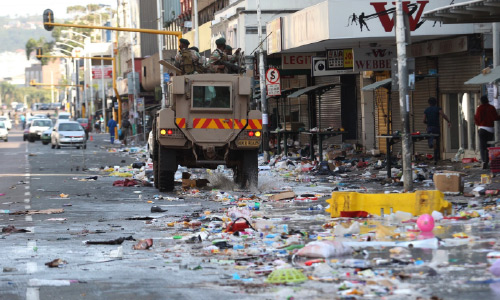Economic impact of civil unrest on the City
Stakeholders need to work together to rebuild the local economy following a week of civil unrest, said eThekwini Mayor Councillor Mxolisi Kaunda. He was speaking during various community engagements which began on 14 July aimed at quelling the violent protests and bring stability to the City. The high-powered government delegation, which included Human Settlements, Water and Sanitation Minister Lindiwe Sisulu, aimed to rebuild a conducive environment to attract investment to the City. Mayor Kaunda said preliminary high-level estimates on the economic impact of the unrest include: R1 billion loss of stock, R15 billion damage to property and equipment, 55 000 informal traders affected, 40 000 formal businesses impacted including small businesses, and a large portion of those may never recover and, 129 000 jobs at risk and a large portion of that may be lost.
KwaZulu-Natal Premier Sihle Zikalala said the protests have had a negative impact on the economy of the province as they targeted key economic centres and infrastructure including shopping malls, trucks and major arterial routes such as the N2 and the N3. “This violence has crippled small and emerging businesses. Hawkers cannot sell because cities are shutdown while some in the taxi industry may lose their vehicles due to repossession by banks. Employees are unable to work because industries and places of work are not operational,” he said. “The sectors severely impacted include the freight and the retail industries.
Other sectors were not spared. Many companies had to suspend their operations due to the inability to transport its material and stock. These incidents have the potential to dampen investor confidence and derail our economic recovery efforts.” Premier Zikalala said the estimated destruction to both private and public infrastructure is around R1 billion.
@durban.gov.za

